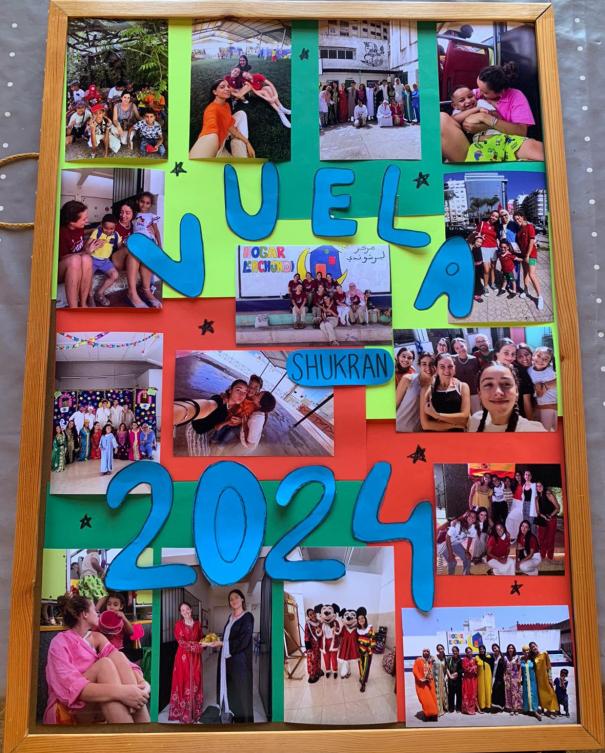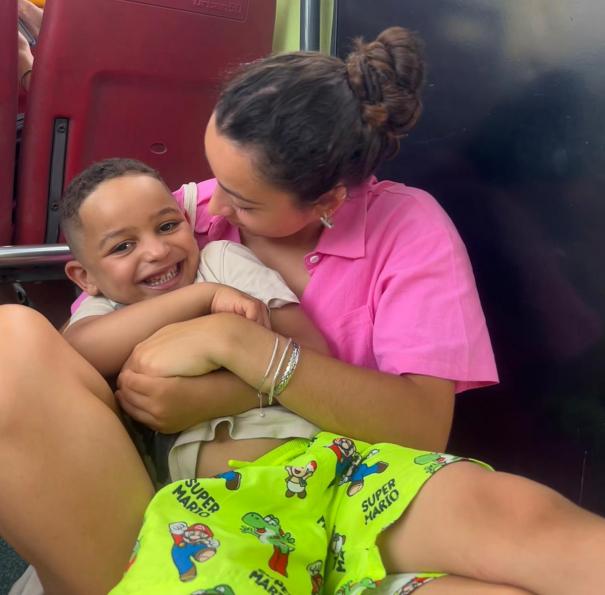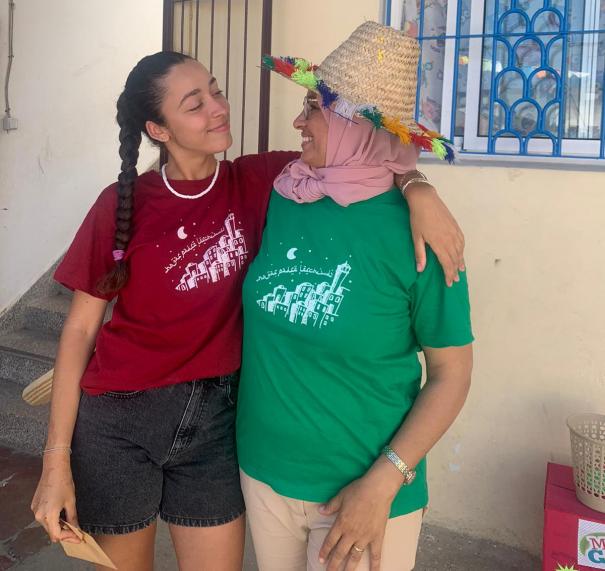Margarida Neves in Tangier
"I'm Margarida, I'm 20 years old and I study psychology at the Faculty of Human Sciences of the Universidade Católica Portuguesa. For three weeks I volunteered at Hogar Padre Lerchundi in Tangier, a home/school for Moroccan children."
"There are many children in Morocco and not all of them can or manage to go to school. These children in particular are at risk of social exclusion for different reasons: some are the children of single mothers, others are the children of parents with addictive behaviours or who live on the streets. They therefore spend a lot of time alone and on the streets, which prevents them from being children and forces them to grow up too quickly and in the wrong way.
In Morocco, being a single mum is not very accepted and so both mothers and children end up being excluded from society. This is a country where women have few rights and so none of these situations are made easy.
In this school they can spend a lot of their time and study, so that they can go against the life that is already somewhat "predestined" for them.
As well as this project, we learnt about many projects in Tangier and Ceuta that focus on social aid for people at risk.
In Ceuta we had the opportunity to visit two associations that aim to help African immigrants who enter Ceuta "illegally".
We know young people, so close in age to ours, who have swum from Morocco to Ceuta for hours to reach this Spanish city. We know young people who have jumped 5, 8 or 10 metre walls in order to get in. Young people who need to come here to study, to work and to have a better life and so, even though they study and have the same courses as us, they don't have the same opportunities as us because there are no jobs. That's why they feel the need to enter Europe illegally, so that they can have a better life.
We saw the hooks they use to climb the walls and they explained how they do it: with very little. They don't carry anything, just the few clothes they have on and they go barefoot. They have two minutes from the time the sensors signal that someone is trying to climb until the police arrive to stop them and send them back to their country (which is forbidden). When I'm in a country other than my own, it's explicitly illegal for them to send me back to my country. Yet they do it anyway.
We also asked: "What about the hands? Don't they cut into the wire?" The answer: "Of course. A lot. But you have to hold on to try and get to the other side alive."
The boys we met live in associations in Ceuta and until they get their residence papers, they can't go to other cities on the peninsula.
During the week, our days began with breakfast, sitting on the floor of the school playground while the children ate in the canteen. We were greeted every morning with lots of love, affection and smiles.
Our relationship with the children was very special! They only spoke Arabic, so we communicated a lot through gestures or language mixtures that even we didn't understand very well. However, we understood each other perfectly and the affection we had for each other was easily noticeable.
Depending on the day, we might have outings or just activities at school, but it was easy to see the effort and dedication of the teachers to give the children the most fantastic day possible. At the end of the day we had visits to other projects or some free time to walk around the city or rest.
This project was undoubtedly the most remarkable experience I've ever had! It was very intense and also exhausting. It often made me feel powerless and small. When you're faced with realities that are so different from your own, it's hard not to think about why things happen. It's even harder to accept that there are also things that have no reason, that are chance and luck.
At the same time, and despite all this, it was a very rewarding experience. I feel I've left my mark on Tangier, but above all Tangier has left a mark on me."




